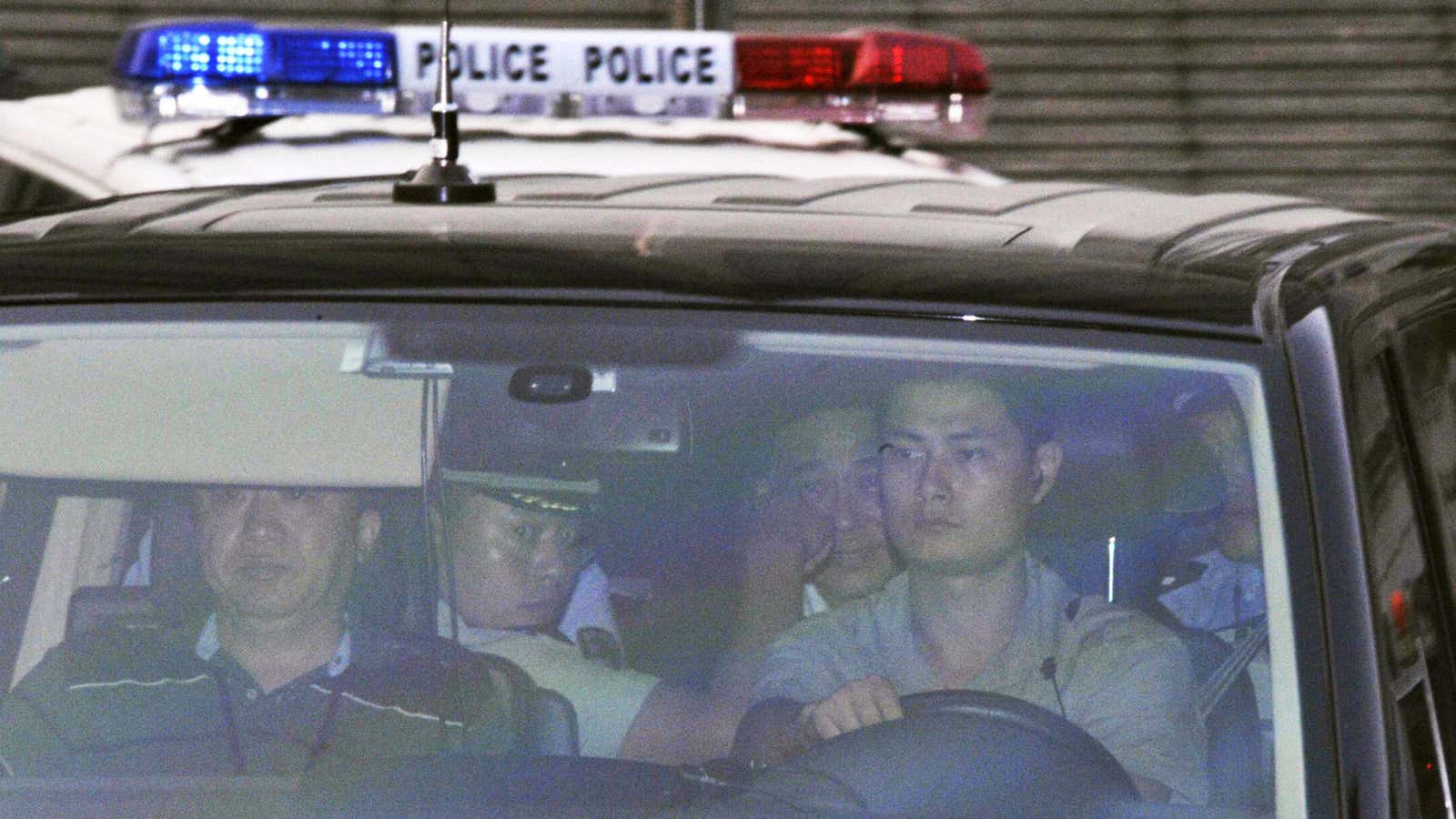Former Politburo member Bo Xilai’s high-profile bribery and corruption trial has surprised many because of its apparent relative openness, a state that owes much to the official court transcripts made public by the government on social media.
In addition to Bo’s unexpected and outspoken denial of the charges against him, the transcripts also painted a picture of a man with a tumultuous personal life, whose affairs with other women angered his wife, who in turn may have had an affair of her own with his top deputy.
But those transcripts, posted on the Sina Weibo account (link in Chinese) of the Jinan courtroom where the trial is being held, are a less transparent than they seem, according to several news reports citing sources within the courtroom itself, where about 100 people and a small group of state media are allowed.
Here’s what’s been left out:
Orders from above
The official transcript of the prosecution’s closing arguments against Bo Xilai on Monday was updated to eliminate a paragraph specifically related to orders “from above” about Wang Lijun, the former police chief who allegedly helped to cover up the murder of British businessman Neil Heywood. Wang was declared in ill health in February 2012 and put on “vacation-style treatment.” Here’s the deleted paragraph, according to the South China Morning Post:
For example, in the question of agreeing to issue a forged medical certificate for Wang Lijun, Bo Xilai repeatedly emphasized that this was based on superior orders. But as the evidence in the case shows, Bo Xilai’s approval of the forged medical certificate was given earlier, and the mentioned six-item orders from above followed later, moreover, these instructions did not include forging a medical certificate. Bo’s defense mentioned above is an attempt to repudiate the truth in an effort to shirk responsibility.
Threats from the disciplinary commission
Bo testified on Friday that commission officials told him to study the fate of former Anhui vice-governor Wang Huaizhong and former railways minister Liu Zhijun, The New York Times reported. Wang was executed in 2004 for taking bribes said to be worth about 5 million yuan (about $817,000) a fraction of the 21 million yuan in bribery charges against Bo. A death sentence against Liu, again for bribery charges, was suspended this year, after he admitted his guilt, repented and offered additional information in the case.
The officials point was that “the party could mete out any punishment it chose, and that Mr. Bo’s fate rested on whether he chose to cooperate during his own trial,” Bo told the courtroom, but his remarks were not included in the official transcript, The New York Times said. In the run-up to the trial, Bo said he was interrogated “hundreds” of times and fainted 27 times, the paper said, information that was not included in the official transcript.
Bo’s pleading about his family and sympathy for his wife
Bo testified last week that he wrote five letters to the Communist Party’s central leadership, “pleading for his wife’s pardon in the murder of British businessman Neil Heywood,” but this testimony was stricken from the official transcript, the South China Morning Post reported. Bo’s remarks about his wife Gu Kailai’s “insanity,” which were widely reported, were him quoting prosecutor’s words, not his own words as the transcript said. He also invoked the mercy of prosecutors, the paper said, remarks which were stricken from the official record.
“My life has already been a tragedy; so is Kailai’s life,” Bo told prosecutors on Saturday, according to the source. “I hope you guys can stop this investigation, and stop squeezing the last bit of warmth out of our family.”
